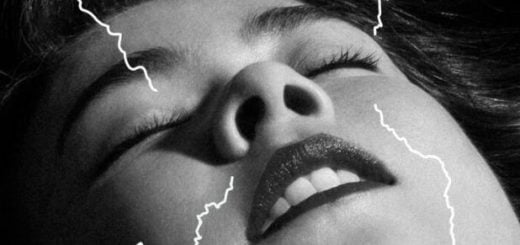Thursday Girl by Mitski Lyrics Meaning – The Haunting Lament of Identity and Sorrowful Pleas
Lyrics
As I go to the party on my knees
Saying take it all please
And tell me no
Tell me no, tell me no
Tell me no
Somebody please
Tell me no, tell me no
Tell me no
Tell me no
Glory, glory, glory to the night
It shows me what I am
I’m not happy or sad, just up or down
And always bad
And tell me no
Tell me no, tell me no
Tell me no
Somebody please
Tell me no, tell me no
Tell me no
Tell me no
Somebody here
Tell me no, tell me no
Tell me no
Tell me no
In the pantheon of modern indie musicians, Mitski has carved out a unique space with her evocative lyrics and haunting melodies. ‘Thursday Girl,’ a track off her 2016 album ‘Puberty 2,’ is a song that gleams like a dark gem in her discography. It’s a track that captures both the specificity of Mitski’s personal experience and the universality of seeking one’s identity in the throes of emotional turbulence.
A closer listen reveals layers of complexity beneath the minimalist surface. The song operates as a microcosm for a larger human struggle, a battle between the known and the unknown within oneself. Through the examination of the lyrical content and underlying themes, ‘Thursday Girl’ emerges as a poignant anthem that resonates with the lost, the searching, and the hearts yearning for affirmation in rejection.
The Cry for Rejection: A Paradoxical Plea
‘Tell me no,’ repeats with the fervency of a mantra throughout ‘Thursday Girl.’ The phrase, stark in its simplicity, is a plea for boundaries, a request for someone to draw lines when oneself is incapable of doing so. Mitski, it seems, is grappling with desires that may lead to ruin, seeking out external forces to reign her impulses in.
By repeating the lines fervent with desire for refusal, Mitski exposes the human vulnerability to seek validation in denial. It’s a curious contradiction – the search for self-worth in the unworthy, and the need for salvation in the form of rejection.
Emotional Dichotomies: The Upheaval of Being ‘Up or Down’
Mitski eschews the traditional emotional dichotomy of ‘happy or sad,’ opting instead for ‘up or down—and always bad.’ She captures a state beyond simple sadness, a more complex emotional register that oscillates between extremes, never settling in the comforting but naive binaries of conventional emotion.
This line suggests a volatility that transcends surface-level emotions, delving into a more profound internal chaos. Mitski mirrors the feelings many face in the tumult of their inner lives, where conventional labels fail to suffice and where every rise is coupled with an inevitable fall.
The Hidden Meaning: A Personal Night
Mitski personifies the night, attributing to it a revelatory power: ‘Glory, glory, glory to the night that shows me what I am.’ But this is not a night of peace or clarity; it’s a night that exposes, that strips away facades and forces a confrontation with the true self.
This night could be taken as a metaphor for introspection or the darker phases of one’s life journey, where the lack of external distractions allows for painful but necessary self-reflection. It is in this nocturnal solitude that Mitski seems to find a cruel teacher, a force that imparts wisdom through the revelation of one’s deepest vulnerabilities.
A Memorable Introspective Odyssey: ‘Glory to the Night’
The song’s repeated invocation of ‘glory’ juxtaposes a term often associated with triumph and exaltation with the dark introspective journey Mitski undertakes. It’s a complex glorification—perhaps an acknowledgment that there is worth and beauty in the process of self-discovery, no matter how fraught with distress.
These memorable lines stay with listeners, echoing in the mind long after the music fades. It provides a platform for philosophical contemplation on the nature of personal growth and the need to honor even the darkest aspects of that process.
The Quest for Autonomy and Control
While ‘Thursday Girl’ may at first seem to be a call for external restraint, it is equally a battle cry for personal autonomy. Each entreaty of ‘tell me no’ underscores a counterpoint desire for self-governance – to not need the no, to be capable of setting and adhering to one’s own limits.
The fact that Mitski presents this struggle through such a catchy, resonant tune adds an additional layer of complexity: it’s a song that demands to be felt and wrestled with, just as deep, raw emotions demand to be acknowledged and confronted. In giving voice to these feelings, Mitski not only gives them legitimacy but also offers a cathartic outlet for those who share in this universal human strife.








